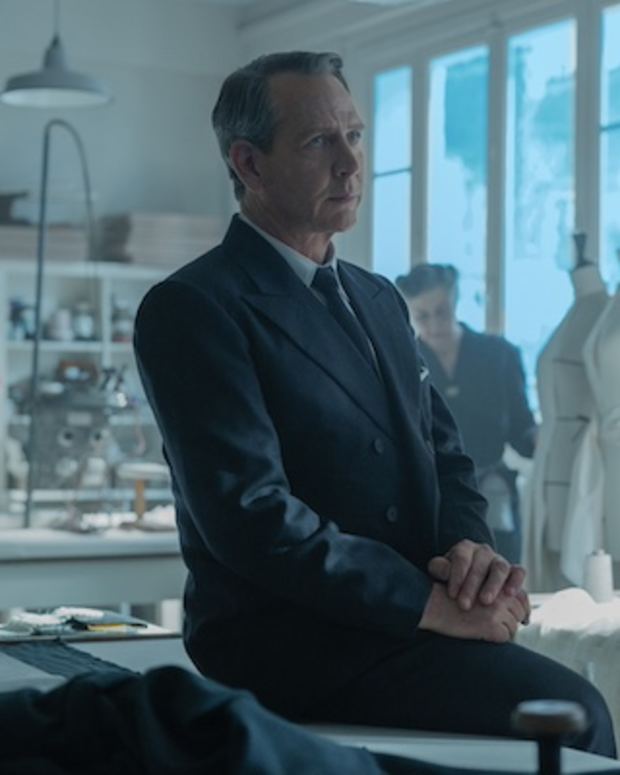Meet Manager Jake Wagner
Jeanne Veillette Bowerman is the Editor of Script magazine and a screenwriter, having written the narrative feature adaptation as well as the 10-hr limited series of the Pulitzer Prize-winning book, Slavery by Another Name, which were honored in the Top 25 Tracking Board Launch Pad Features Competition, CS Expo Finalist, the Second Round of Sundance Episodic Lab, and a PAGE Awards TV Drama Finalist. Follow Jeanne on Twitter @jeannevb.
Click to tweet this article to your friends and followers!
For many screenwriters, the Holy Grail isn’t necessarily a produced script; it’s finding someone who believes in you enough to represent you in the trenches of Hollywood. Because that’s who a manager is – not just a person who has access, but also a person committed to helping your overall career. They can’t do that unless they believe in your writing and in you, as a person.
Who wouldn’t want that kind of champion? More importantly, can you imagine the relief it is for a struggling, hustling writer to finally feel someone has her back?
Let’s find out how you can get your champion.
I recently had the pleasure of speaking with Jake Wagner, formally of Benderspink and now with Good Fear Film + Management. I admit this balls-of-steel writer was as giddy as a schoolgirl being able to pick his brain. By the time I hung up, I was his biggest fan. Don’t worry, Jake, not in a Kathy Bates kind of way. I may be a writer, but I’m not that crazy.
Originally from the suburbs of Detroit, Jake always knew he wanted to be in the movie business. Once Good Will Hunting came out, he imagined writing, directing and staring in his own films, like Ben and Matt. Who didn’t? Those two gave us all hope. But Jake turned to management and has been in Los Angeles for fourteen years. Here’s a glimpse into his advice for writers on breaking in and surviving the industry.
Let’s start with the basics: When should a writer start looking for an agent or a manager? How many scripts, etc.?
Jake Wagner: The prime time is when you feel you have something strong. But at that point, you should still get three or four honest reads, and I don't mean from your mom. I mean honest reads, probably not from your best friend, buddy’s girlfriend or wife. If you went to a writing school, or have a writers group, they’ll tell you the truth. You have to get some truth reads even if it hurts or stings. Tell them, “Shoot me straight.” You need to put your best foot forward because I will remember your writing. If someone re-queries me, and I did not like their writing the first time, it sets off a sensor in my brain. I remember them.
Do you have a recommendation of how many scripts a writer should write before approaching a manager?
JW: Some people, their strong script is the first. Others, it might be the twentieth. There’s no magic number. All you need is one great script. The rookie mistake is when you have four or five scripts, I'm always wondering why aren’t you repped yet? I don't buy it. Don't tell me you have 10 amazing scripts that are award-winning quality. If the feedback is so remarkable, then why hasn’t someone slipped it to their contacts in the industry for you? [In a query] I don't know if it’s your twentieth script or your first. Just say, “I have this one script I want to talk about.”
What is the best way to get noticed by you?
JW: I read queries, and if I think the logline sounds commercial and sellable, I’ll request it and read the first 15 pages. But even when the logline sounds interesting, the script probably isn’t going to be great because it’s a [blind] query. There’s a 90% chance the execution isn’t there. Look, writing a script is hard. You have to be great. So the better way, and when I get excited about a new writer, is when the script is sent to me from someone I know – an agent, lawyer, studio exec, producer, assistant, or friend of a friend. Even an assistant’s roommate or old friend from college. If it’s coming from someone who is in the business, who reads a lot of scripts and knows, then it’s already through one layer of qualification. That doesn’t guarantee anything, but it gets my attention. I request [to read] one out of every 200 or 250 queries.
What’s your top pet peeve that turns you off to a writer instantly?
JW: Biggest is if someone comes in my office, wrote a great script, I give my ideas on how to sell it, but I ask, “What are you working on next?” and they give me a blank stare. As long as there’s a willingness to generate more material, then that’s okay. I need to see the willingness. If willingness to work on the next project isn’t there, that’s a big red flag. They wrote this great script and think that’s it.
Writers write. You have to be personable, presentable, energetic, enthusiastic and the CEO of your business… which is writing. You're the face and the product. The whole misconception that writers can be creepy and weird doesn’t work. You have to be as much as a salesman to your product as to yourself. Being pompous and demanding is the way to rub me wrong. Calling me everyday, “What’s the plan?” I’ve been doing this for a while; you have to trust me. It’s like when you’re trying to sell a house or an apartment. You have to let the realtor do their thing. If you kept calling asking, “What’s going on?” that would drive the broker crazy. I don't like to be micromanaged. I don’t think anyone does.
If you could inject each one of your clients with one quality, what would it be?
JW: To keep getting better on the next script. Even if they come in great, everyone can get better. Become a better writer. Kobe Bryant shoots free throws in the morning to get better. Writers should do the same thing with their writing.
In the world of Internet & Skype, how important is it for your clients to be in L.A.?
JW: I have a couple clients in NY who are able to do it from there, for the most part. One in Toledo Ohio, and one in Carmel. You can do it from anywhere, but if you want to book a job you have to come out here a couple times a year for two weeks at a time and do three meetings a day. You can write a spec, and I can sell that, but if you want to be a serious writer, then you sell the hot spec, book an assignment off that, which means you have to come out here. Pitching studios all happens live in the room. Then you can go back to your cave and write it. My clients come out for a month and hopefully book the job then they go back to wherever and write. Part of it is every meeting gets rescheduled at least once.
Makes sense that you have to give yourself time to be flexible. How about for those of us who are not repped? What’s your best advice on being our own agents?
JW: I’m biased because I am a repp, but that’s impossible (laughs). I do get emails all the time, “I'm in L.A. I’ve got these five meetings, but I need a manager. Help me!” By the way, producers and studios execs that read something and love it are all best friends with agents and mangers, and they need to service them. Any smart exec who loves some script, will slip it to agents and managers to get some credit and then they’ll be chasing the writer. That’s why I’m always suspicious as to why aren’t half of those meetings with repps. If I were a young writer, the first thing I would do is get a manager.
I’m a bit of a junkie about looking back and learning from our lives. What advice would you go back and give your 18-year-old self?
JW: I would just say you need to focus and grow up a lot earlier. Having fun is something you do when you’re young. When I got to L.A., I didn't focus and take my career super seriously right away, and I just had fun. Life is short and you should, but I really got serious when I was 28. I wish I would have when I was 23. Where would I be today if I had gotten serious five years earlier? Get it out of your system and then focus. A little more serious, a little more focused earlier. That’s it.
Note: Jake recently was a guest on Pilar Alessandra's On The Page Podcast. You can find more of his invaluable advice here, number 345 "Sign. Service. Sell." Follow Jake on Twitter: @JakeWagnerLA.
- USAF Dentist Eric Koenig Sells ‘Matriarch’ to Paramount - script sale of one of Jake's clients!
- Interview with Screenwriter Rob Edwards
- Meet Greg Beal of the Academy Nicholl Fellowships in Screenwriting




![[L-R] Omar J. Doresy and Sebastian Maniscalco in Bookie (2023).](https://scriptmag.com/.image/ar_8:10%2Cc_fill%2Ccs_srgb%2Cfl_progressive%2Cg_faces:center%2Cq_auto:good%2Cw_620/MjA2NjY1MDM3NzA2Njk5OTgw/omar-j-john-johnsonmax.jpg)





